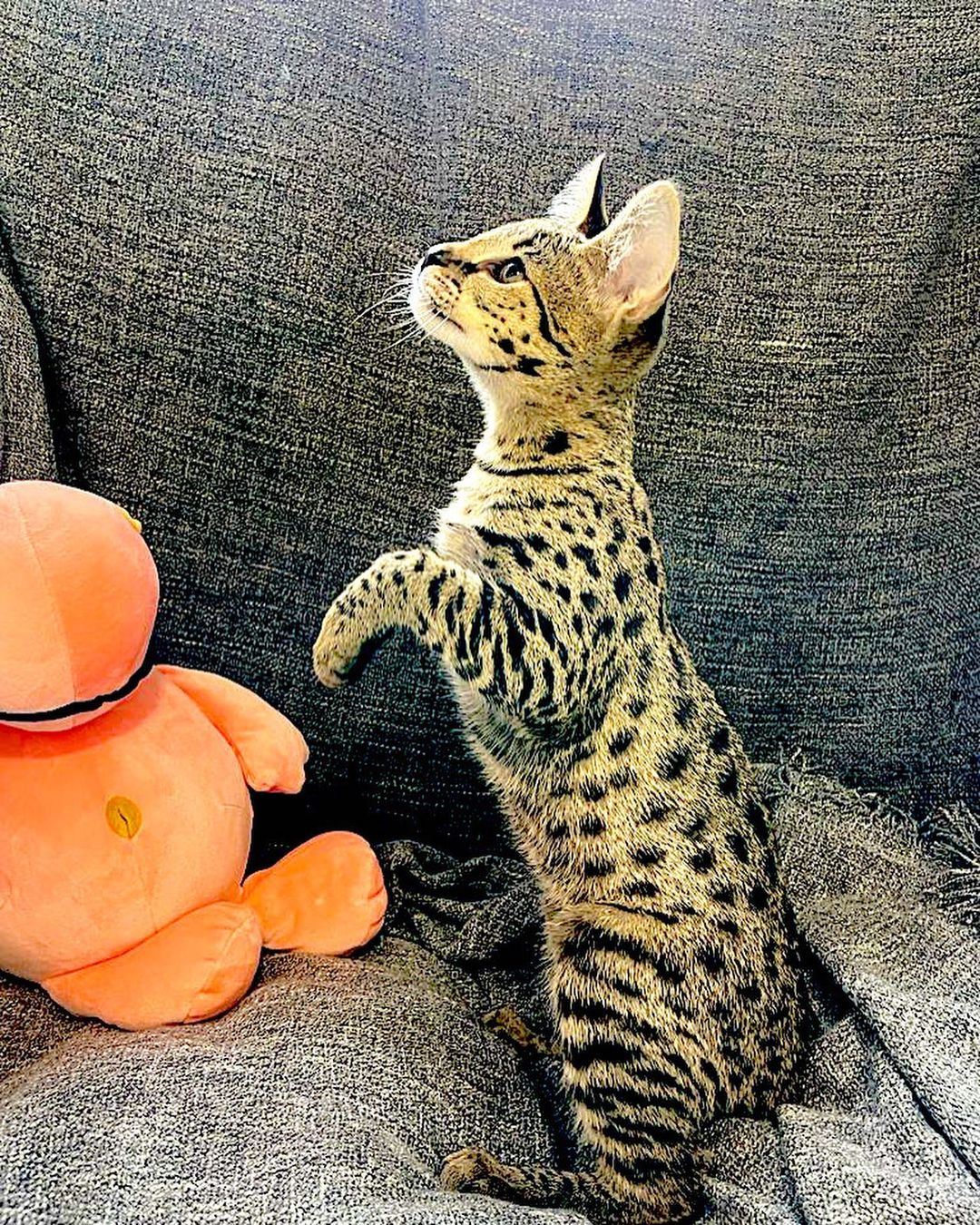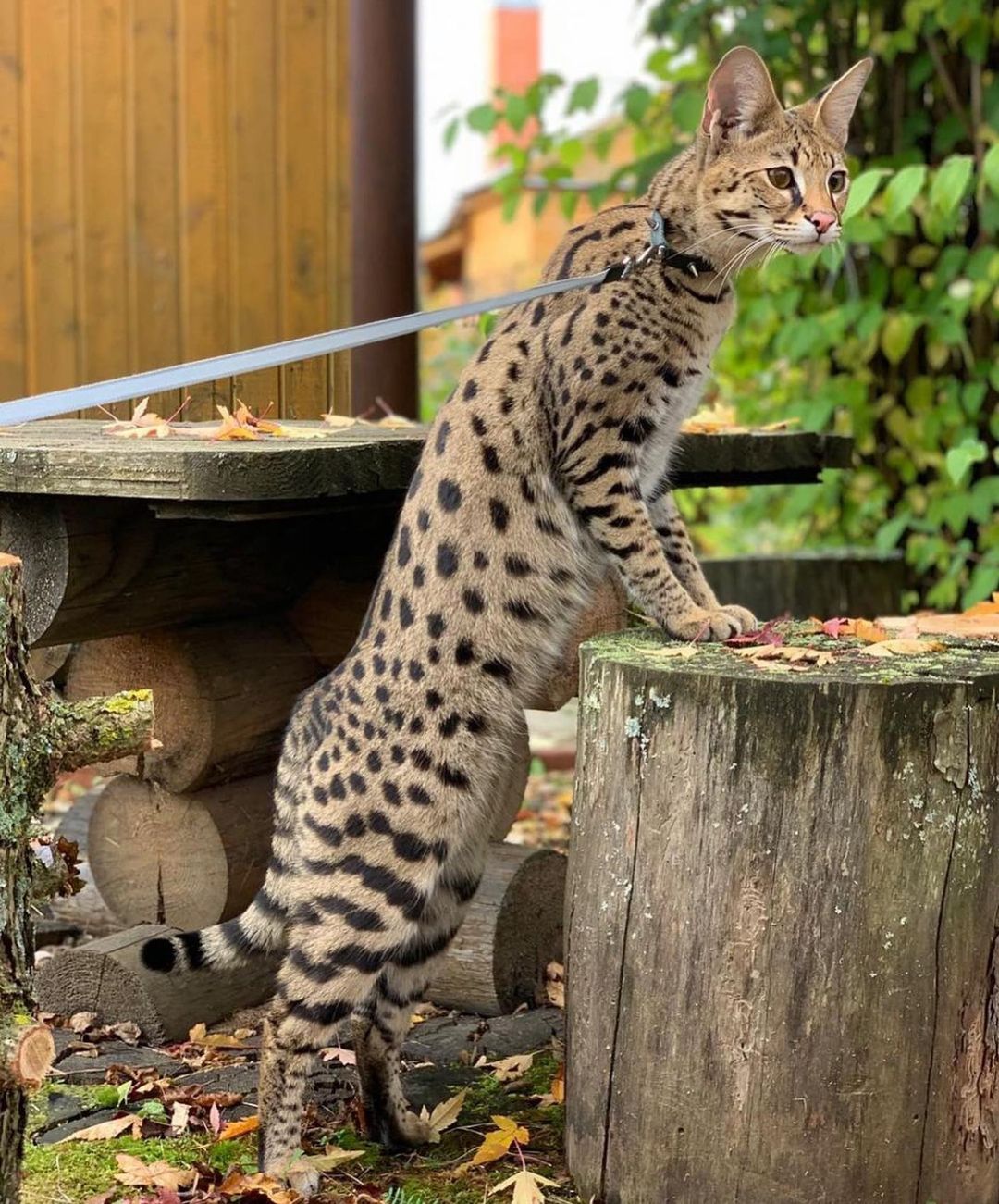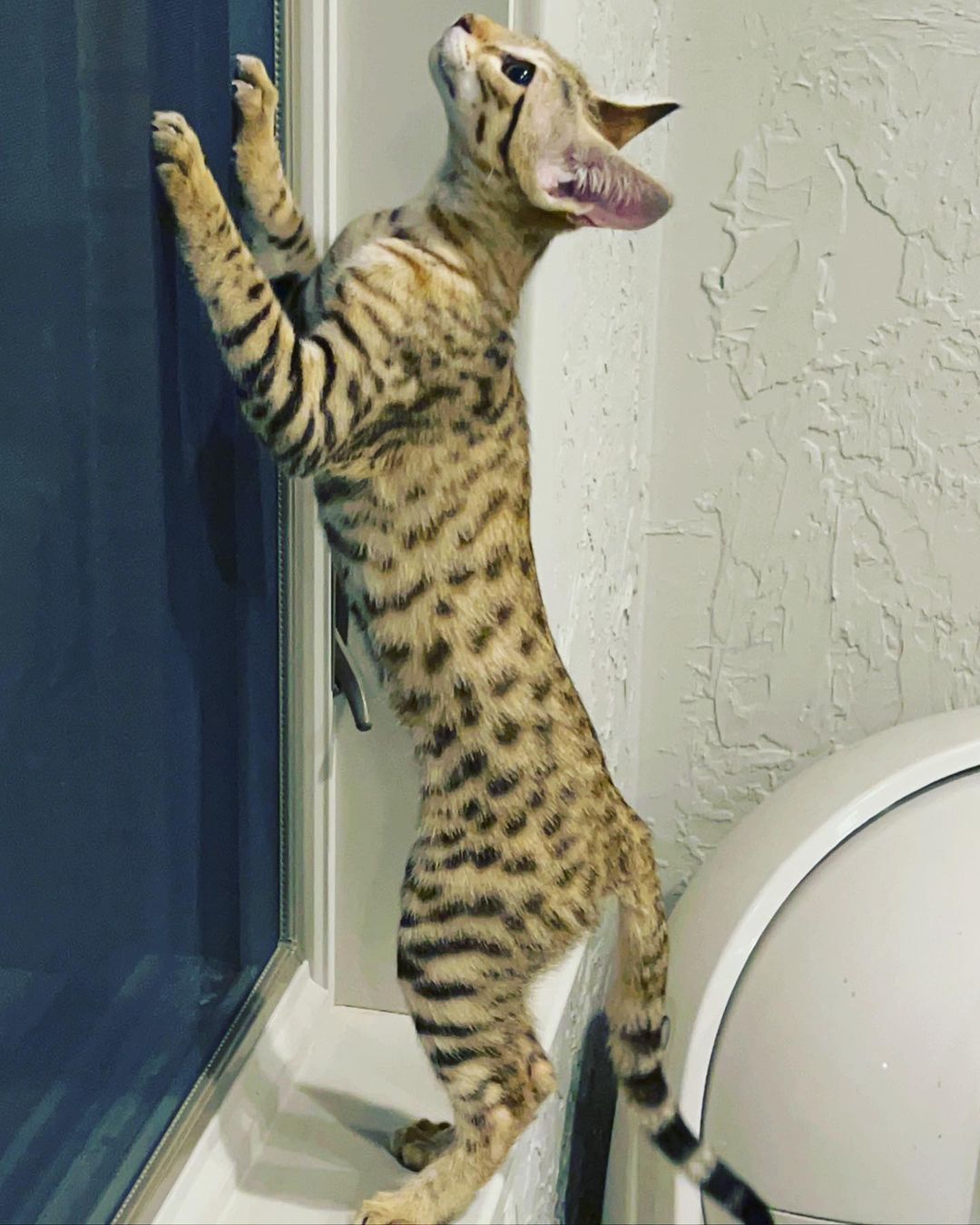If you are a cat person, there’s a good chance you’ve heard of the most expensive cat breed in the United States and probably the whole world: The Savannah Cat. It is a hybrid cat breed that results from a cross between a wild serval and a housecat. This hybridization, as a result, usually produces large and lanky offspring with an average lifespan of 12-15 years. Even though Savannah Cats are known to be great companions for kids and other pets, some American States do not find them friendly. The breed, which originated from the United States, is partially or completely restricted/banned in a few states including Georgia, Hawaii, Nebraska, and Rhode Island.
So, before looking to buy a Savannah Cat, it is extremely important to check if your state, county or city has laws that restrict or ban ownership of savannahs. In addition, do not be deceived by a breeder who is anxious to market you a Savannah cat. Make sure to check for yourself what your state of residence permits. With that in mind, let's quickly take a look at savannah cat generations.
Savannah Cat Generations
Savannah cats are divided into different categories called filial generations, which are F1, F2, F3, and so on. An F1 Savannah Cat is the first filial generation, meaning the cat has a Serval father and a domestic mom. An F2 Savannah Cat has a Serval grandparent while an F3 has a Serval great-grandparent, and so on. Each filial number downward indicates that the Savannah cat is less and less wild. For example, an F1 Savannah Cat is considered 50 percent wild while an F4 ranges from 10 to 20 percent wild. Some American States' laws on Savannah cats are based on their filial generations. The farther a Savannah Cat is removed from its African Serval ancestry, the safer it is to be kept as a pet in the house.
4 American States Where Savannah Cats Are Illegal
In these states, Savannah cats are either banned completely or partially restricted.
1. Georgia
Georgia law prohibits most exotic cats, including Savannahs, from being owned as pets. In The Peach State, it is completely illegal to keep a Savannah Cat as a pet in your home. That includes all the filial generations of Savannah cats from F1 through F5. A person could be fined or incarcerated if they are caught with a Savannah cat in their home in Georgia. The Goober State prohibits the ownership of Savannahs simply because they are hybrid cats with wild blood in them. For more info, see Georgia
Hybrid Law.
2. Hawaii
In the State of Hawaii, all filial generations of Savannahs are considered to be hybrid cats and therefore are prohibited under
Plant Quarantine (PQ) law. In addition to Savannahs, keeping Bengal cats as a pet is also illegal in The Aloha State.
3. Nebraska
Nebraska law prohibits the ownership of all hybrid cats, including the Savannah. Exceptions are made for only zoos. Individuals are only allowed to own domestic cats (felis domesticus). Other banned pets in Nebraska include bears, tigers, leopards, wolfs, and skunks.
4. Rhode Island
Rhode Island is one of the few American States where owning a hybrid cat such as Savannah is illegal. No person shall import, receive, or possess a Savannah cat and other exotic animals in The Ocean State. Even under the permitting guidelines, the average person would find it extremely hard to meet the requirements to obtain a permit to possess such animals, according to
Rhode Island Hybrid Law.
American States Where Savannah Cats Are Restricted
These States allow their residents to own some filial generations of Savannah cats such as F4 and F5. However, some of them require a permit.
- Alaska: Allows F4 and later
- Delaware: Permit required
- Iowa: Allows F4 and later
- Massachusetts: Allows F4 and later
- New Hampshire: Allows F4 and later
- New York: Allows F5 and later
- Vermont: Allows F4 and later
- Texas: Not allowed in most counties
In the State of Texas, Savannah cats are allowed with strict permitting in the following counties: Ward County, Mason County, Lubbock County, Aransas County, Guadalupe County, Bell County, Coryell County, Ector County, Harris County, and Kaufman County. In the State of New York, only New York City prohibits the ownership of Savanah Cats.
Do Savannah Cats Make Good Pets?

Yes, a Savannah Cat can make a good pet for the right person. These majestic cats are known for their playful attitude and loyal disposition, which make them great family pets. Although they are known to get along with other pet cats and dogs, Savannah Cats, due to their strong hunting instincts, aren't always suitable for households with pets like birds, hamsters and fish. Below are the ratings of filial generations of Savannah cats:
- F1 Savannah cat: 50% wild
- F2 Savannah cat: 25-30% wild
- F3 Savannah cat: 12-25% wild
- F4 Savannah cat: 10-20% wild
- F5 Savannah cat: 10-12% wild







these photos were taken from our website https://f1savannahkittens.com
ReplyDeleteother articles took from https://mainecoonsize.com and https://hypoallergenicbengalcat.com
please credit the source thank you